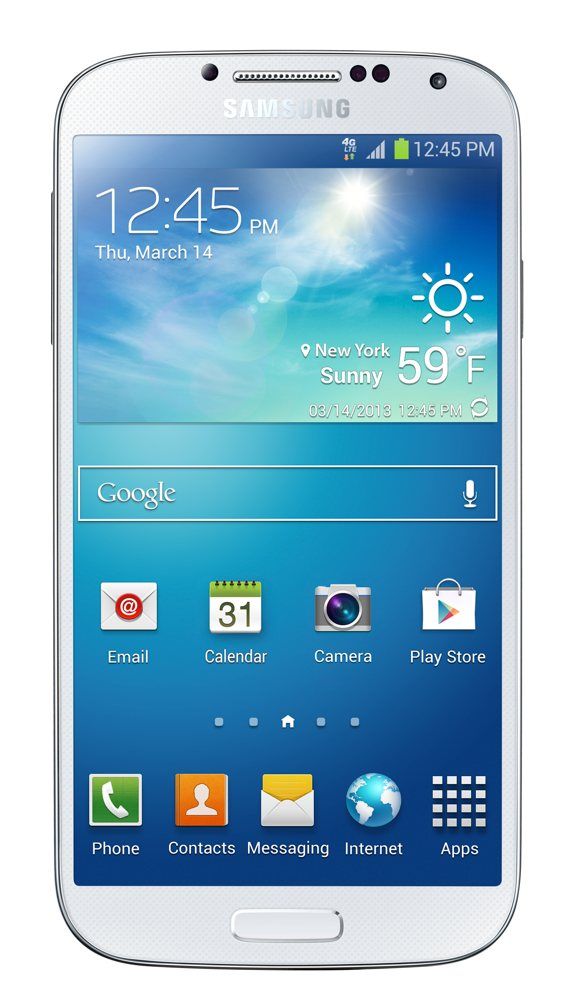Top Class Actions’s website and social media posts use affiliate links. If you make a purchase using such links, we may receive a commission, but it will not result in any additional charges to you. Please review our Affiliate Link Disclosure for more information.
A California federal judge kept the claims in the class action lawsuit against Samsung Telecommunications America LLC that the company cheated on how it measured the speed of its Galaxy S4 smartphones, but tossed allegations that it overstated the amount of storage on the phone.
U.S. District Judge James Donato said that he agrees with Samsung that the claims plaintiff Daniel Norcia made regarding the alleged statements, or affirmative representations, made by the company about the performance of his Galaxy S4 and the benchmarking applications were not sufficient to make a claim that Samsung had violated the California Consumer Legal Remedies Act, the California Unfair Competition law and false advertising law.
Judge Donato explained that the alleged actions don’t constitute a “statement” or “representation” about the phone under the state’s laws. However, he did say that Norcia had leave to amend those charges.
The allegations that Samsung had covertly programmed the Galaxy to cheat on benchmarking apps is an actionable claim, the California federal judge said, saying that it may in fact be a fraudulent omission.
“Plaintiff has adequately alleged that consumers would have had an expectation or an assumption that the kind of benchmarking manipulations alleged here would not be hidden in the source code of their phone and it would have been difficult for the ordinary consumer to have discovered this issue,” Judge Donato wrote in his order about the Samsung class action lawsuit.
The ruling means that Norcia and other class members may proceed with their allegations against Samsung.
Norcia claimed in his Samsung class action lawsuit filed in February 2011 that the company had “artificially boosted the performance of its devices when running benchmarking apps.”
“Specifically, Samsung has programmed these devices to run at higher-than-normal speeds when they detect certain ‘benchmarking apps,’” the Samsung class action lawsuit claimed. “Benchmarking apps are performance-measuring tools used by reviewers and consumers to test and compare the speed and performance of smartphones and tablets.”
Norcia alleged that the high performance of the Galaxy S4 on these apps was done intentionally by Samsung, which created a false perception about the speed and the performance of the Galaxy S4 devices because Samsung knew that certain apps were used for evaluating and comparing smartphones and other devices.
“Samsung also knew that if it artificially boosted the performance of its devices when running benchmarking apps, reviewers and the public would falsely believe that the Galaxy S4 was similarly fast in real-world situations,” the Samsung class action lawsuit claimed.
“In reality, the processors in the Galaxy S4 run at a lower speed and the artificial performance boost disappears when the devices are performing real world tasks instead of running benchmarking apps,” he explained further.
The phones and tablets were allegedly “rigged,” Norcia argued to increase the popularity of the devices “to the detriment of the public.”
Samsung tried to have the class action lawsuit moved to arbitration, which Judge Donato denied in September 2014, saying that the language Samsung used in its arbitration provision was not legally binding because no contract was ever actually formed. The California federal judge said that Samsung’s language used in its arbitration provision in its warranty booklet amounted to “stealth tactics.”
Norcia is represented by Eduardo G. Roy, Daniel C. Quintero and John R. Hurley of Prometheus Partners LLP.
Samsung is represented by John Paul Phillips, Ryan Christopher Nier and Sean David Unger of Paul Hastings LLP.
The Samsung Galaxy Speed Fraud Class Action Lawsuit is Daniel Norcia v. Samsung Telecommunications America LLC et al., Case No. 3:14-cv-00582, in the U.S. District Court for the Northern District of California.
UPDATE: On Jan. 19, 2017, the Ninth Circuit unanimously ruled against Samsung’s bid to force arbitration in two separate class action lawsuits filed in California.
UPDATE 2: On Jan. 31, 2019, a Samsung Galaxy owner is seeking Class certification in his lawsuit alleging that the company rigged its smartphones to run faster in pre-sale speed tests.
UPDATE 3: On Sept. 26, 2019, Samsung agreed to pay $2.8 million to resolve class action claims that the company misled customers about their Galaxy S4 speeds.
ATTORNEY ADVERTISING
Top Class Actions is a Proud Member of the American Bar Association
LEGAL INFORMATION IS NOT LEGAL ADVICE
Top Class Actions Legal Statement
©2008 – 2024 Top Class Actions® LLC
Various Trademarks held by their respective owners
This website is not intended for viewing or usage by European Union citizens.
















46 thoughts onSamsung Galaxy S4 Speed Fraud Class Action Will Continue
Add me
Add me i have 2 s21 ultras and they are very slow
please add me
I had an s4, and me to the suit.
We had 3 S4 on Verizon! Add pease
Please add me,